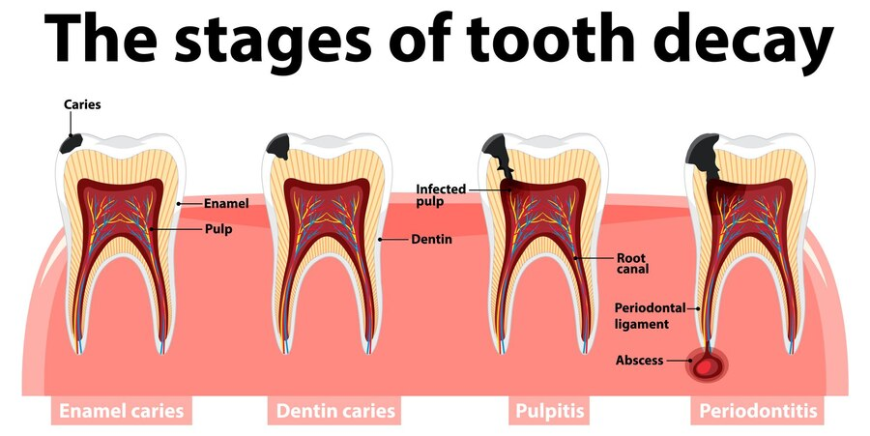What Are Root Canals and Why You Shouldn’t Fear Them
Root canals are safe and effective procedures designed to relieve pain and save your natural tooth. Discover why modern dentistry has made them nothing to fear.

Let’s face it: most people get nervous when they hear the words “root canals.” But here's the truth—root canal procedures are not scary anymore. In fact, they’re one of the most effective ways to save your natural tooth and stop pain.
What Is a Root Canal?
First things first: a root canal is not the name of the procedure—it’s the name of the space inside your tooth.
Why Would You Need a Root Canal?
There are several reasons you might need root canals:
● A deep cavity that reaches the pulp
● A cracked or broken tooth
● An injury or trauma to the tooth
● Repeated dental procedures on the same tooth
● Infection or abscess at the root tip
What Happens During Root Canal Treatment?
A lot of people worry that root canal treatment is painful. But the good news is—it’s not! With today’s advanced technology and local anesthesia, the procedure feels very similar to getting a filling.
● Numbing the Area – The dentist will numb the tooth and surrounding area so you feel no pain.
● Removing the Infected Pulp – A small opening is made in the tooth to remove the pulp.
● Cleaning and Shaping – The root canals are carefully cleaned, shaped, and disinfected.
● Filling and Sealing – The space is filled with a rubbery material called gutta-percha and sealed.
● Final Restoration – Usually, a crown is placed to strengthen and protect the tooth.
Will It Hurt?
This is the biggest fear people have—and it’s based on old myths.
In fact, most patients say they felt better after the procedure because the pain from the infection was finally gone.
What Happens If You Avoid It?
If you delay or skip a root canal treatment, the infection can get worse. You might develop:
● Severe pain
● Swelling in the gums or face
● Abscesses
● Bone loss around the root
● Tooth loss
An untreated infection can also spread to other parts of the body, causing serious health issues. That’s why dentists recommend acting quickly.
Are Root Canals Expensive?
They can be more costly than a filling, but far less than replacing a lost tooth. Many dental offices offer affordable root canals Hammond, IN, with payment plans or insurance assistance.
● You save your natural tooth.
● You avoid costly procedures like implants or bridges
● You stop pain and infection before they spread
● You maintain your chewing and speech abilities.
How Long Do Root Canals Last?
With good care, root canals can last a lifetime. It’s important to:
● Brush and floss daily
● Avoid biting on hard objects like ice
● Visit your dentist for regular checkups
● Get a crown placed if recommended
How to Know If You’re a Candidate for Root Canal Treatment
If you’re experiencing any of the following, it’s time to schedule a visit:
● Persistent tooth pain
● Sensitivity to hot or cold that doesn’t go away
● Swollen or tender gums
● A darkening tooth
● A small bump on the gums (could be an abscess)
Your dentist will take X-rays and do an exam to confirm whether root canal treatment is the best option.
Myths About Root Canals – Busted!
Let’s clear up some common myths:
● TRUTH: With modern tools, the procedure is nearly painless.
● TRUTH: Saving your natural tooth is always better for your mouth and jaw.
● TRUTH: Root canals can last many years, even a lifetime, with proper care.
Don’t Fear the Root Canal!
The root canals have come a long way from what they used to be. Routine procedures to save teeth, keep you healthy, remove pain.
Do You Need Affordable Root Canals? Choose a Trusted Dental Team
If you’re looking for affordable root canals or want to learn more about root canal treatment, make sure to choose a dental office that prioritizes your comfort and health.

 HammondDentalGroup
HammondDentalGroup